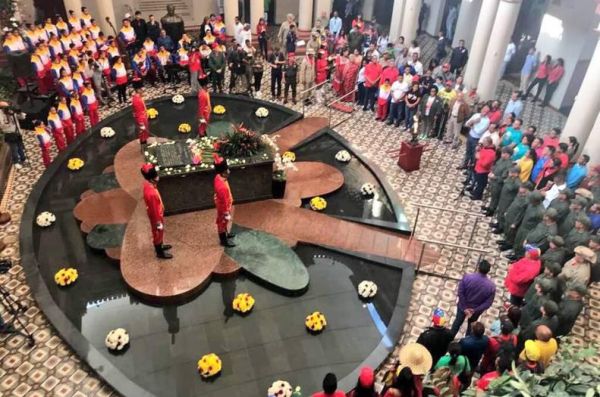
Six years since his passing and the memory of Hugo Chavez still remains not only in the hearts of Venezuelans but of Latin Americans around the globe.
His leadership and legacy revolutionized the state of Venezuela, like no other administration in the nation’s history, cutting the chord from imperialist countries in the north, taking the reins and changing South America’s future.
After centuries of passivity, under Chavez’s administration, Venezuela bloomed into one of the strongest, most independent nations on the continent.
Over the 14 years of his presidency, Chavez made it his mission to bring equality to lower classes from mediating race discrimination to increasing employment opportunities and introducing social programs.
By exploring the expenditure of Venezuela’s oil industry, the former president was able to allocate funds for free housing, literacy, and health care initiatives. Pensions for the elderly surged, jumping from 400,000 to over two million; some 1.5 million Venezuelans benefited from the Mission Robinson I and learned to read and write.
Under Chavez’s policies, poverty rates were cut in half and the level of extreme poverty decreased by two-thirds; child malnutrition decreased and the amount of safe, clean drinking water grew.
In an article published by the Council
on Hemispheric Affairs, Roger D. Harris, Task Force on the Americas, said,
“Venezuela went from being among one of the most economically unequal nations
in Latin America to being among the most equal through the exercise of state
power for the populace.”
Chavez’s spirit was contagious and empowered the region with a passion for Latin America and its colorful history.
His experience was pivotal in the creation of the Bolivarian Alliance for the Peoples of Our America (ALBA) which united Venezuelan and Cuba in 2003 in a mutually respectful and reciprocal fair trade arrangement. What started as a two-member agreement, soon grew into an 11-member nation concord.
A second initiative, PetroCaribe, made waves in 2005 when 17 countries from Latin America and the Caribbean joined together to secure a steady energy supply, without overdue interference from Canada or the United States.
Similarly, The Union of South American Nations (Unasur) and Community of Latin American and Caribbean States (Celac) were created again as a means to break from centuries of tradition and submission orchestrated by the Northern Hemisphere.
The progress realized in Venezuela over the last decade and a half hardly make it surprising that the United States is desperate to instate a Washington-approved head of state.
Over the last few months, the U.S. has increased its efforts to dislodge Chavez’s democratically elected successor, Nicolas Maduro. In its most recent attempt, the U.S. sent “humanitarian aid” to Colombia in a show of solidarity with the Venezuelan opposition and the “suffering boys and girls.” However, violence- perpetrated by opposition forces- broke out along the border and resulted in the injury of numerous state police officials.
This “philanthropic” ploy was denounced by Venezuelan government officials before an international delegation at the United Nations last week, when Foreign Minister Jorge Arreaza revealed that the trucks of “food” were carrying equipment for barricades and anti-government movements lodged by the opposition.
Despite these hardships, Maduro’s government continues Chavez’s mission, founding new social programs to boost the economy and employment opportunities, while still ensuring the heart and spirit of “Chavismo” is reflected in modern-day Venezuela.
 Escambray ENGLISH EDITION
Escambray ENGLISH EDITION





Escambray reserves the right to publish comments.